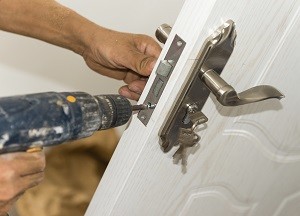After observing the physical deterioration of a home, a lender sent inspectors to the property to determine whether the property was abandoned, posted notices on the property and sent letters to the borrower asking about the status of the property. After the inspector determined that the property was vacant, th e lender changed the locks. The owner claimed that by changing the locks without a court order, the lender had improperly converted the property. The mortgage contained provisions that stated the borrower would preserve the home, and failure to do so would allow the lender the right to protect its interest in the property. Conversion is the “unauthorized assumption and exercise of the right of ownership over goods belonging to another, to the exclusion of the owner’s rights.” The court ruled that a lender did not convert the premises in which the plaintiff resided when managing the premises because (i) the plaintiff did not provide sufficient evidence that the lender took the property and (ii) under the terms of the Mortgage, the lender was authorized to enter onto and secure the premises by, among other things, changing the locks. The court further reasoned that the mortgagee did not engage in any unfair practices due to the nature of the mortgage and due to the fact that the plaintiff failed to show he suffered any ascertainable loss.
e lender changed the locks. The owner claimed that by changing the locks without a court order, the lender had improperly converted the property. The mortgage contained provisions that stated the borrower would preserve the home, and failure to do so would allow the lender the right to protect its interest in the property. Conversion is the “unauthorized assumption and exercise of the right of ownership over goods belonging to another, to the exclusion of the owner’s rights.” The court ruled that a lender did not convert the premises in which the plaintiff resided when managing the premises because (i) the plaintiff did not provide sufficient evidence that the lender took the property and (ii) under the terms of the Mortgage, the lender was authorized to enter onto and secure the premises by, among other things, changing the locks. The court further reasoned that the mortgagee did not engage in any unfair practices due to the nature of the mortgage and due to the fact that the plaintiff failed to show he suffered any ascertainable loss.
Held: Lender That Inspected Premises And Changed Locks Of Vacant Home Didn’t Engage in Unfair Practices
